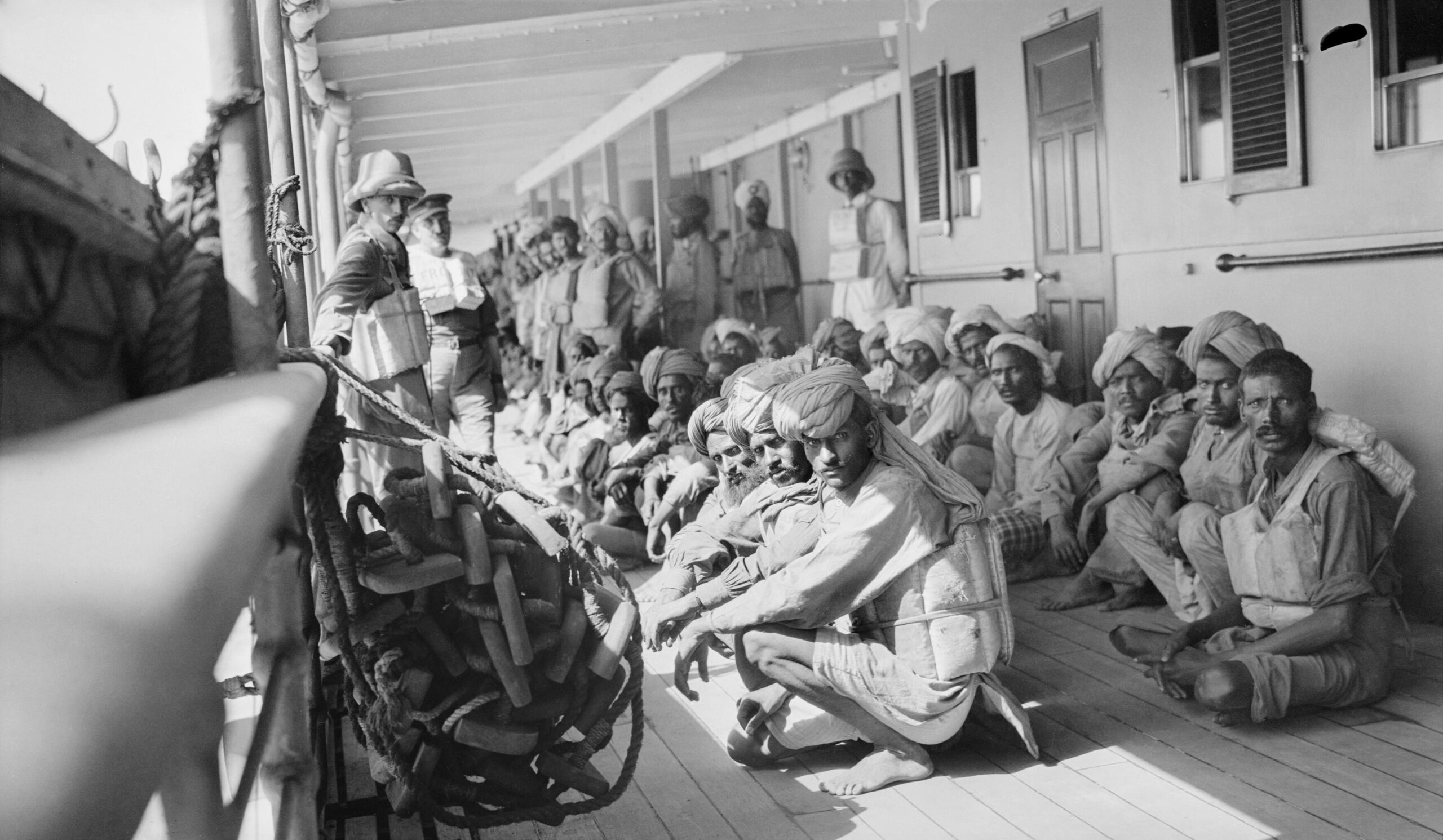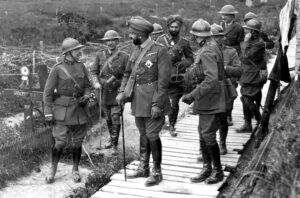
First World War
The First World War was sparked by the assassination of Archduke Franz Ferdinand by the Serb nationalist Gavrilo Princip in Sarejvo on 28th June 1914. This triggered a diplomatic dispute verging on war between Austria-Hungary and Serbia known as the ‘July Crisis’.

Europe was divided between two major military alliances, the ‘Triple Entente’ of Britain, France, and Russia, and the ‘Triple Alliance’ of Germany, Austria-Hungary, and Italy before the outbreak of the war. Already existing tensions between the great powers of Europe ultimately made a peaceful resolution to the crisis impossible to reach. Britain joined the war when Germany invaded Belgium on 4th August, along with 3 million troops from across its empire and commonwealth.
India
As Europe crept closer to war at the end of July 1914, most Indians did not envisage that they would also be dragged into the conflict. After Britain declared war on Germany on 4th August 1914, it was not just Britain but the British Empire at war. This decision to throw the might of the British Indian empire at the forces of the Central Powers was not a decision made in consultation with Indian representatives in the provincial legislatures. Viceroy Lord Hardinge took it upon himself to declare that India would support the war effort. The Indian National Congress and the Muslim League leaders declared their open support to demonstrate their good will and loyalty to what was seen as a just cause against German aggression. However, there was some resistance to Indian involvement in what was a European conflict.
The Indian contribution to the British war effort was substantial and is often overlooked. India also suffered economic depression as a consequence of the war. This was exacerbated by 100s of thousands of Indians leaving the agricultural tracts of the Punjab to join the war. India was also burdened with financing the war which meant borrowing from the domestic budget and raising funds by increasing import duties – this led to a cost of living increase for ordinary Indians.
Indian loyalty and sacrifice was not reciprocated which contributed to growing unrest after the war. The Indian troops, like the Europeans on the Western Front, were not prepared for the horrors of modern European warfare between fairly equally matched armies. The experiences of Indian troops, again like the European soldiers, was hidden from the public through censorship of personal correspondences and war reporting. Had the horrors of the First World War been known to the public at large, it would have further fuelled already existing disaffection within Indian society.
India contributed more troops than all other British colonies combined, and served in all of the theatres of the First World War including the Western Front. The impact of the war can be seen in two respects: the impact on Indian troops and the impact on Indian politics. The Indian soldiers were unprepared for modern European warfare compared to their white British counterparts due to military practices in the British Indian army. The Indian troops had experience in colonial wars against militarily inferior opposition, they were also purposefully held back from engaging in new methods of advanced warfare and restricted from operating artillery. This contributed to the difficulties in adjusting to trench warfare and the long-drawn out attrition warfare that took place on the Western Front. The massive contributions of not only British India in men and material but also the princely states of India in Britain’s war effort left a major mark on the nationalist movement. They felt that India deserved greater political representation due to the sacrifices and contributions made by India. However, the immediate British response was one of repression due to growing social unrest.
Share this Article
Our Funders

